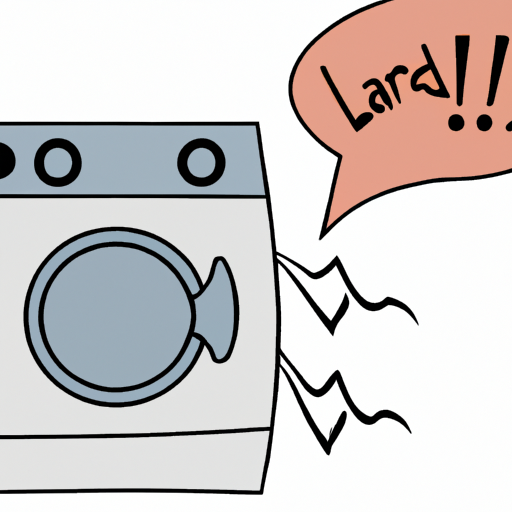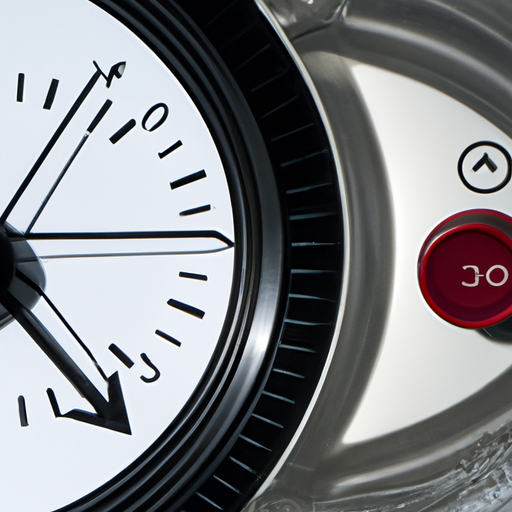In this blog post, we will explore the top 10 signs that your appliance may require repair. From strange noises to increased energy bills, these signs can indicate a variety of issues that, if ignored, could lead to more serious and expensive problems down the line. Learning to recognize these signs early can save you time, money, and frustration.
1. Unusual Noises: Is Your Appliance Trying to Communicate?
If your appliance starts making strange noises that you haven’t heard before, it could be a sign that something is missing. Clanking, buzzing, or grinding sounds are not typical for a well-functioning appliance, and they should not be ignored. These unusual noises could indicate loose parts, worn-out components, or impending mechanical failures. Addressing these sounds promptly can help prevent further damage to your appliance and potentially save you from costly repairs in the future. Ignoring these noises could lead to a complete breakdown of the appliance, requiring extensive repairs or even a replacement.
It’s essential to pay attention to the type and frequency of the noises your appliance is making. For example, a refrigerator making a loud buzzing noise could indicate a faulty compressor, while a dishwasher making a grinding sound might have an issue with its motor. By listening closely to these sounds and identifying the source, you can provide valuable information to a professional repair technician, making their job easier and potentially saving you time and money in the long run. Remember, your appliance might be trying to communicate with you through these unusual noises, so it’s crucial to heed its warning signs and take action promptly for optimal performance.

A noisy washing machine with a speech bubble indicating strange sounds
2. ‘An increase in energy bills can be a silent cry for help’ – Understanding Energy Efficiency
An increase in energy bills can be a silent cry for help when it comes to your appliances. While it’s normal for energy costs to fluctuate slightly, a significant and unexplained rise in your monthly bills could indicate that your appliances are not operating as efficiently as they should be. Inefficient appliances often consume more energy than necessary to perform their tasks, leading to higher energy consumption and increased utility costs for you as a homeowner. Ignoring these spikes in energy bills could result in not only a financial burden but also potential damage to your appliances in the long run.
Understanding the energy efficiency of your appliances is crucial for maintaining a well-functioning home and minimizing your environmental impact. Energy-efficient appliances are designed to use less energy while still providing the same level of performance, helping you save money on your utility bills and reducing your carbon footprint. By investing in energy-efficient appliances and ensuring that your current ones are operating at their optimal efficiency, you can not only lower your energy costs but also contribute to a more sustainable future for the planet. Keep a close eye on your energy bills and consider upgrading to energy-efficient appliances to improve your home’s overall efficiency and lower your monthly expenses.
3. Frequent Cycles: Is Your Appliance Running More Than Usual?
Frequent cycles of operation in your appliances could be a clear sign that they are in need of repair. If you notice that your appliance is running more frequently than usual to complete its tasks, it may indicate underlying issues that require attention. For example, a refrigerator that constantly cycles on and off or a dishwasher that takes longer to complete a cycle than it used to could be experiencing mechanical or functional problems that need to be addressed promptly. Ignoring these signs of increased operation can lead to further damage and potentially costly repairs down the line.
Apart from being a nuisance, frequent cycles of operation can also impact the efficiency and longevity of your appliances. Overworking an appliance due to frequent cycles not only consumes more energy but also puts additional stress on its components, leading to accelerated wear and tear. This increased strain can result in parts breaking down sooner than expected, compromising the overall performance of the appliance. By monitoring the cycle frequency of your appliances and addressing any irregularities promptly, you can prevent further damage, extend the lifespan of your appliances, and ensure they continue to operate efficiently. Be proactive in identifying and addressing any issues related to frequent cycles to avoid inconvenience and unnecessary expenses in the future.

A washing machine and a timer, symbolizing frequent cycles
4. Poor Performance: Is Your Appliance Doing Its Job?
Poor performance from your appliances can be a clear indicator that they are in need of repair. If you notice that your appliance is no longer functioning as effectively as it once did, it could be a sign of underlying issues that require attention. For example, a washing machine that no longer cleans clothes thoroughly or a stove that takes longer to heat up than usual may indicate mechanical or functional problems that need to be addressed promptly. Ignoring signs of poor performance can lead to further deterioration of the appliance’s functionality and potentially result in complete breakdown.
When appliances fail to perform their intended functions properly, it can disrupt your daily routine and cause frustration. Additionally, appliances that struggle to perform their tasks may end up consuming more energy or resources to complete them, leading to increased utility bills. By monitoring the performance of your appliances and addressing any inconsistencies or inefficiencies promptly, you can prevent further damage and ensure that your appliances continue to meet your needs effectively. Don’t overlook signs of poor performance in your appliances, as they could be early warnings of potential issues that, if left unattended, may lead to more significant problems in the future. Be proactive in maintaining the performance of your appliances to avoid disruptions and unnecessary expenses.
Recognizing the signs that your appliance needs repair is the first step in maintaining its longevity and efficiency. Ignoring these signs can lead to more serious issues and even the need for a total replacement. By paying attention to changes in performance, noises, smells, and energy usage, you can ensure your appliances are always in top working condition.


